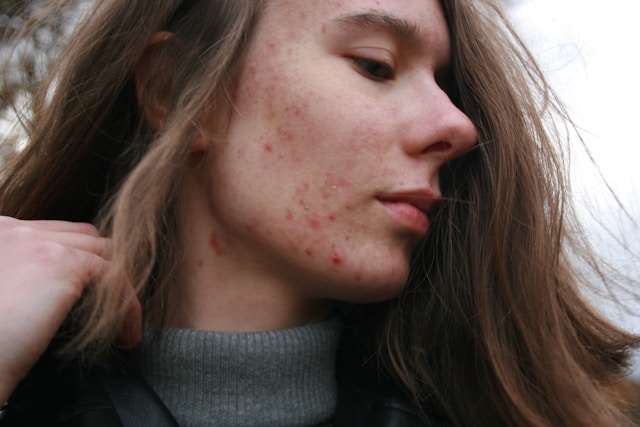Trapped Emotions and Environmental Toxins: The Hidden Culprits Behind Persistent Skin Problems
Conventional treatments often fall short in resolving stubborn skin issues like rashes, acne, psoriasis, and eczema. For those who have made dietary and hygienic changes without success, the frustration can be overwhelming. However, recent research sheds light on overlooked factors that may be contributing to these dermatological conditions – trapped emotions and environmental toxins.
The Science Behind Trapped Emotions and Skin Health
Studies have shown a strong link between emotional well-being and skin health. Research indicates that a significant percentage of individuals seeking dermatological care report higher stress levels compared to control groups. Stress can trigger an inflammatory response in the body, leading to increased cortisol levels that worsen skin symptoms. Moreover, unresolved trauma and chronic stress can disrupt the endocrine-immune network, further exacerbating skin conditions.
Interestingly, individuals with post-traumatic stress disorder are more likely to experience skin problems. Despite these findings, mental health screenings are rarely conducted during dermatology appointments. Additionally, emotional stress has been found to impede wound healing and tissue repair, making the skin more susceptible to infections and irritation.
Environmental Toxins – An Invisible Threat to Skin
Exposure to environmental pollutants poses a significant threat to skin health. Substances like ozone, particulate matter (PM2.5), volatile organic compounds, nitrogen dioxide, and UV radiation can wreak havoc on the skin. PM2.5, for example, can penetrate the skin through hair follicles and sweat glands, causing oxidative stress and inflammation. UV rays and high temperatures may trigger flare-ups of conditions like rosacea, eczema, and psoriasis.
One particularly dangerous toxin is radon, a radioactive element found indoors. Studies have linked higher levels of residential radon to increased mortality rates from skin cancers. Installing mitigation systems and regular testing can help reduce radon exposure and create a safer indoor environment.
How Emotions and Toxins Interact
Emotional stress and environmental toxins create a feedback loop that can worsen skin conditions. Stress triggers the release of cortisol, which impairs the skin barrier and increases vulnerability to conditions like psoriasis and dermatitis. Environmental pollutants can infiltrate inflamed skin, disrupting natural detoxification processes and hindering healing.
Climate change plays a role in exacerbating these effects, as rising temperatures and pollution levels contribute to adverse skin reactions. Addressing both emotional stress and environmental toxins simultaneously is crucial for achieving optimal skin health.
Addressing Root Causes for Sustainable Solutions
Eco-friendly skincare products made from raw ingredients can help combat mysterious skin problems. Ingredients like argan oil, vitamin E, and fatty acids have anti-inflammatory properties, while apple cider vinegar, lavender oil, and algae extract are beneficial for acne-prone skin. Additionally, mindfulness practices, therapy, and stress relief activities can help address emotional triggers that impact skin health.
Making lifestyle changes such as eating organic foods, improving indoor air quality, and incorporating plant-based skincare can make a significant difference. Gardening can also be a therapeutic activity that promotes stress relief and physical well-being. Simple steps like changing HVAC filters, investing in air purification systems, and cleaning with non-toxic solutions can improve indoor air quality and skin health.
When to Seek Professional Help
While lifestyle changes are beneficial, sometimes professional intervention is necessary to address persistent skin issues. Consulting with a dermatologist and seeking mental health counseling can help uncover the root causes of skin conditions and develop a comprehensive treatment plan for overall wellness.
Empowering Healthier Skin and Planet
By understanding the connections between trapped emotions and environmental toxins, individuals can take proactive steps to address chronic skin problems. Reflecting on emotional well-being and reducing exposure to pollutants can lead to healthier, radiant skin. Adopting sustainable habits, mindfulness practices, and eco-friendly skincare can support optimal skin health and overall well-being.
Author Bio
Jane is an environmental writer and the founder of Environment.co, where she covers sustainability and eco-friendly living.


